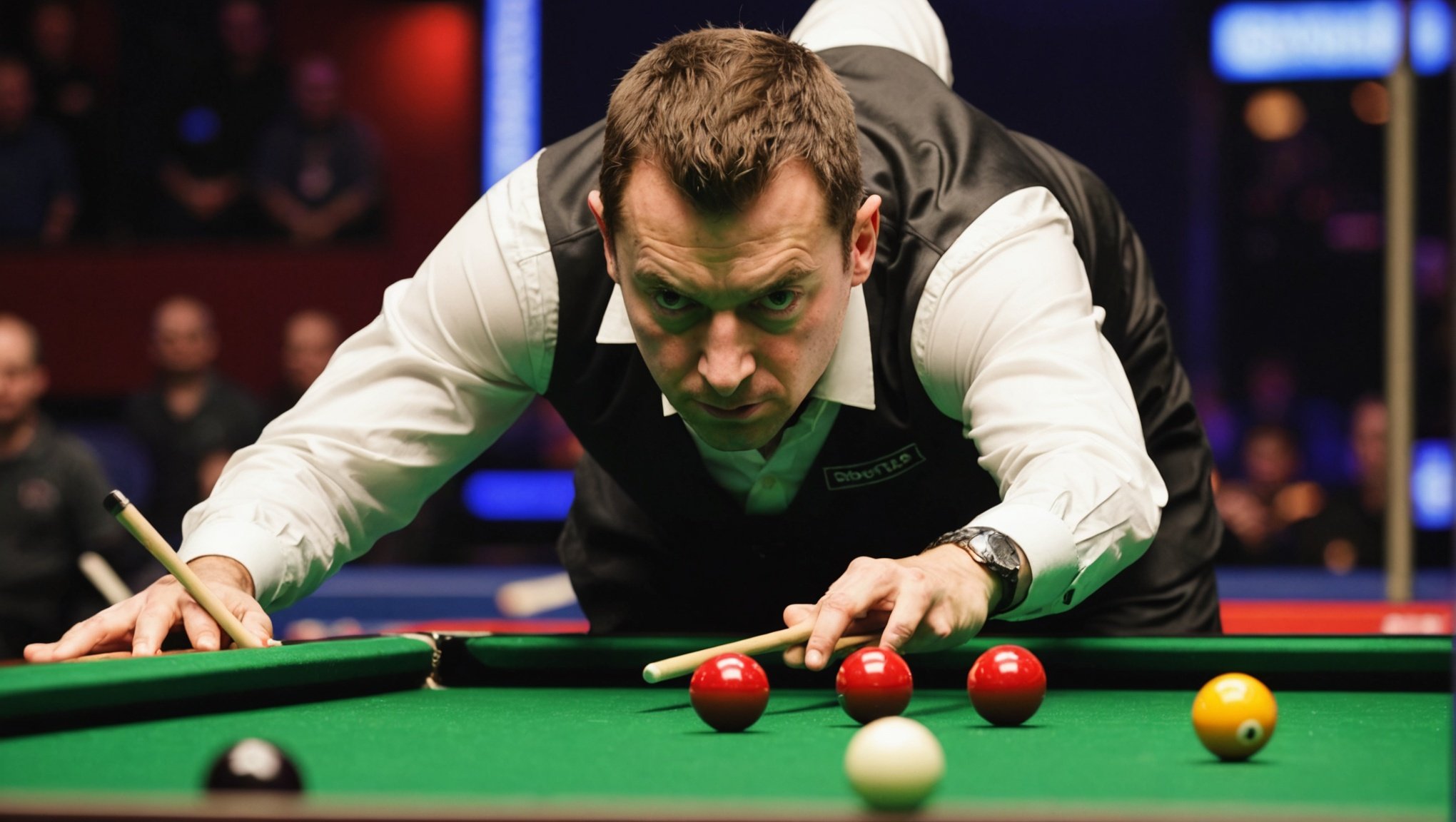Mastering Periodization: A Key to Preventing Burnout in Professional Snooker Players
Understanding Periodization in Sports
When it comes to high-performance sports like professional snooker, the concept of periodization is crucial for maintaining peak performance and preventing burnout. Periodization, in simple terms, is the systematic planning of athletic or physical training to reach the best possible performance in the most important competitions.
The Science Behind Periodization
Periodization is rooted in the principles of human kinetics and sports psychology. It involves breaking down the training year into specific phases, each with its own goals and intensity levels. This approach ensures that athletes are not overtraining or undertraining at any given time.
Additional reading : Harnessing Mobile Apps for Mental Wellness: Empowering Competitive Equestrians for Success
For example, a professional snooker player might have a macrocycle that spans the entire season, divided into several mesocycles (e.g., pre-season, in-season, and off-season). Each mesocycle is further broken down into microcycles, which are weekly training plans.
The Importance of Periodization in Snooker
Snooker, like many other precision sports, requires a delicate balance between physical conditioning, mental focus, and technical skills. Here’s why periodization is particularly important for snooker players:
Also to see : Crafting a Tailored Post-Surgery Recovery Plan for Baseball Pitchers: A Guide for Elbow Rehabilitation
Physical Conditioning
Snooker players need to maintain a high level of physical fitness to endure long matches and intense practice sessions. Periodization helps in managing the training load to avoid overexertion.
- Pre-Season: Focus on building endurance and strength through cardiovascular exercises and weight training.
- In-Season: Maintain fitness levels with lighter, more focused workouts to avoid fatigue.
- Off-Season: Allow for recovery and rebuilding, incorporating activities like yoga or light cardio to keep the body active without the intense strain.
Mental Focus
Mental health and a positive mindset are as crucial as physical conditioning in snooker. Periodization helps in managing mental stress and maintaining focus.
- Pre-Season: Incorporate mental training techniques such as visualization, mindfulness, and positive self-talk.
- In-Season: Use short, focused mental exercises to maintain peak mental performance during competitions.
- Off-Season: Take time for mental recovery, engaging in hobbies or activities that reduce stress.
Technical Skills
Periodization also helps in refining and maintaining technical skills.
- Pre-Season: Focus on technique improvement through drills and practice sessions.
- In-Season: Fine-tune techniques and work on specific areas identified during competitions.
- Off-Season: Review and adjust techniques based on performance analysis from the previous season.
Practical Insights and Actionable Advice
Here are some practical tips for snooker players to implement periodization effectively:
Creating a Periodized Training Plan
- Set Clear Goals:
- Define what you want to achieve in the upcoming season. This could be winning a specific tournament or improving your ranking.
- Break down these goals into smaller, manageable objectives for each phase of the season.
- Assess Current Performance:
- Evaluate your current physical, mental, and technical state.
- Identify areas that need improvement and prioritize them in your training plan.
- Phase Your Training:
- Divide your season into macrocycles, mesocycles, and microcycles.
- Allocate specific training activities and intensities to each phase.
- Monitor Progress:
- Regularly assess your performance and adjust the training plan as needed.
- Use tools like training logs, performance metrics, and feedback from coaches or mentors.
Example of a Periodized Training Plan
| Phase | Duration | Physical Conditioning | Mental Focus | Technical Skills |
|---|---|---|---|---|
| Pre-Season | 8-12 weeks | High-intensity cardio, strength training | Visualization, mindfulness | Technique drills, practice sessions |
| In-Season | 20-24 weeks | Maintenance workouts, light cardio | Short mental exercises, positive self-talk | Fine-tuning techniques, performance analysis |
| Off-Season | 8-12 weeks | Recovery activities, light cardio | Mental recovery, stress reduction | Technique review, adjustments based on performance analysis |
Quotes from Experts and Athletes
Ronnie O’Sullivan on Periodization
“Periodization is key to my success. It allows me to peak at the right time and avoid burnout. I focus on different aspects of my game during different phases of the season, which keeps my training fresh and engaging.”
Dr. Kirstin Saunders, Sports Psychologist
“Periodization is not just about physical training; it’s also about managing mental stress and maintaining a positive mindset. By breaking down the season into manageable phases, athletes can ensure they are always performing at their best without risking burnout.”
Preventing Burnout
Burnout is a common issue among professional athletes, including snooker players. Here’s how periodization can help prevent it:
Recognizing Burnout Signs
- Physical Symptoms: Fatigue, decreased performance, increased injury risk.
- Mental Symptoms: Lack of motivation, increased stress, decreased focus.
- Behavioral Symptoms: Withdrawal from activities, irritability.
Managing Training Load
- Gradual Progression: Increase training intensity and volume gradually to avoid sudden spikes.
- Rest and Recovery: Ensure adequate rest and recovery time between training sessions and competitions.
- Variety in Training: Mix up the training activities to avoid monotony and keep the mind and body engaged.
Enhancing Performance Through Periodization
Periodization is not just about preventing burnout; it is also a powerful tool for enhancing performance.
Peak Performance Timing
By carefully planning the training phases, athletes can ensure they reach peak performance at the most critical times, such as during major tournaments.
Long-Term Development
Periodization allows for long-term development by focusing on different aspects of performance over time. This holistic approach ensures that athletes are well-rounded and consistently improving.
Mastering periodization is essential for professional snooker players looking to maintain peak performance and prevent burnout. By understanding the science behind periodization, creating a well-structured training plan, and managing training load effectively, athletes can ensure they are always performing at their best.
Final Tips
- Stay Flexible: Be ready to adjust your training plan based on performance feedback and changing circumstances.
- Seek Professional Help: Work with coaches, sports psychologists, and other experts to get personalized advice.
- Maintain a Positive Mindset: Keep a positive outlook and focus on self-improvement throughout the season.
By adopting a periodized approach to training, snooker players can achieve high performance, maintain their physical and mental health, and enjoy a long and successful career in the sport.













